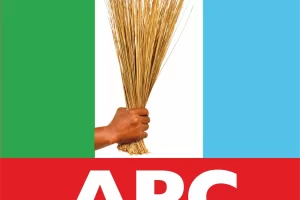The federal authorities has acknowledged that it might not be excited in regards to the rising costs of crude oil within the worldwide market so long as gas subsidies regime remained in Nigeria’s home market.
This was acknowledged by the Director Basic of the Price range Workplace of the Federation, Mr. Ben Akabueze, throughout a webinar that was organised by the Monetary Establishments Coaching Centre (FITC), underneath its Nationwide Financial Growth Outlook Sequence 2022 with the theme, “Rebooting the Financial system: The Path to Sustainable Progress.”
Akabueze mentioned the choice to retain gas subsidies within the 2022 finances would compel the federal authorities to borrow extra N1 trillion to offset its value whereas the state and native governments within the nation would undergo an estimated lack of N1.5 trillion in income.
He mentioned: “Regrettably, for these of us on the fiscal facet, the expectation of excessive oil worth doesn’t excite us so long as this subsidy regime stays as a result of crude oil worth is the most important issue within the worth of refined oil merchandise. Above the worth of $63 per barrel the affect on us fiscally can be unfavorable with this subsidy regime. Greater greenback income will strengthen the exterior sector however the affect on authorities income is unfavorable.”
He additionally defined that the online affect of the choice to retain gas subsidy is that the federal authorities’s finances deficit will rise, “however by the best way it’s worthwhile to perceive that this subsidy value is borne not simply by the federal authorities however by all of the tiers of presidency as a result of it’s charged on the Federation Account degree.
“As you heard from the Minister of Finance, the Nigeria Nationwide Petroleum Company (NNPC) has indicated that it might require N3 trillion to cowl this subsidy in 2022. Out of which we now have (beforehand) offered N443 billion. So, we now have to supply extra N2.5 trillion on the federation degree.
“The federal authorities takes up N1 trillion of the sum and the deficit go up by that quantity. And since there is no such thing as a corresponding income, debt borrowing will go up by N1 trillion. That’s the price of determination that it seems that almost all of Nigerians favoured. It is a democracy and authorities has to hearken to the voice of the individuals.”
Akabueze additionally cleared the phantasm within the minds of many Nigerians that prime oil costs routinely translate to elevated public income and financial savings within the Extra Crude Account.
He added, “The surplus crude account doesn’t obtain accretion by simply subtracting the worth you get from the finances reference worth. It’s only when the income from oil exceeds what was projected within the finances that you’ve got the surplus. However the reality is that we haven’t had it for a very long time. Final yr oil worth was within the excessive $60 however our income assortment was N1 trillion lower than what we projected despite the fact that oil worth was considerably above the finances reference worth just because subsidy ate up a good portion of it.”
He additionally argued that the nation’s debt service to income ratio is excessive not as a result of, “we’re borrowing an excessive amount of or that we’re paying an excessive amount of for our debt however as a result of we’re producing too little income. The opposite vital ratio that we have to take a look at is the income to the GDP ratio in comparison with some African international locations. Nigeria is at the very least one third of the typical by way of our income to GDP ratio. That’s what wants to enhance.”
He additionally blamed the structural imbalance within the nation’s economic system as one of many the explanation why federal income ratio to the GDP has all the time remained very low.
“As an example, agriculture contributes near 1 / 4 of our GDP however yields lower than one per cent to authorities income due to the construction of that sector that’s largely casual and never taxable. These are the issues we have to look into. Nigeria’s financial downside is essentially structural. Even our excessive inflation is pushed largely by structural elements.
“That’s the reason reform is so vital. We have to reform this technique. We want robust voices supporting brokers of reforms within the authorities,” Akabueze mentioned.
Talking, the Chief Advisor of B. Adedipe Associates Restricted, Dr. Biodun Adedipe, who made the important thing presentation in the course of the webinar, mentioned that Nigeria would snatch its economic system from circles of recession by ending the period of relying on crude oil as its main supply of public income, coverage inconsistency, over dependence on import and low nationwide productiveness.
Adedipe projected that the manufacturing sector could be a significant driver of the GDP in 2022.
“There are three the explanation why I took the place that manufacturing will produce development. The primary cause is expounded to the intervention funds pumped by the Central Financial institution of Nigeria into the manufacturing sector. The second cause is the constructive PMIs report that tells us what the way forward for that sector can be by way of enlargement. Third, is the regular influx of FDIs and quantity 4 is the import information that confirmed that half of the nation’s import in 2021 went to the manufacturing sector, ”he mentioned.
The Managing Director/Chief Government Officer of the FITC, Ms. Chizor Malize, additionally anticipated development to return from the oil and fuel sector and the monetary sector of the nation’s economic system. Supply: ThisDay




















Add Comment